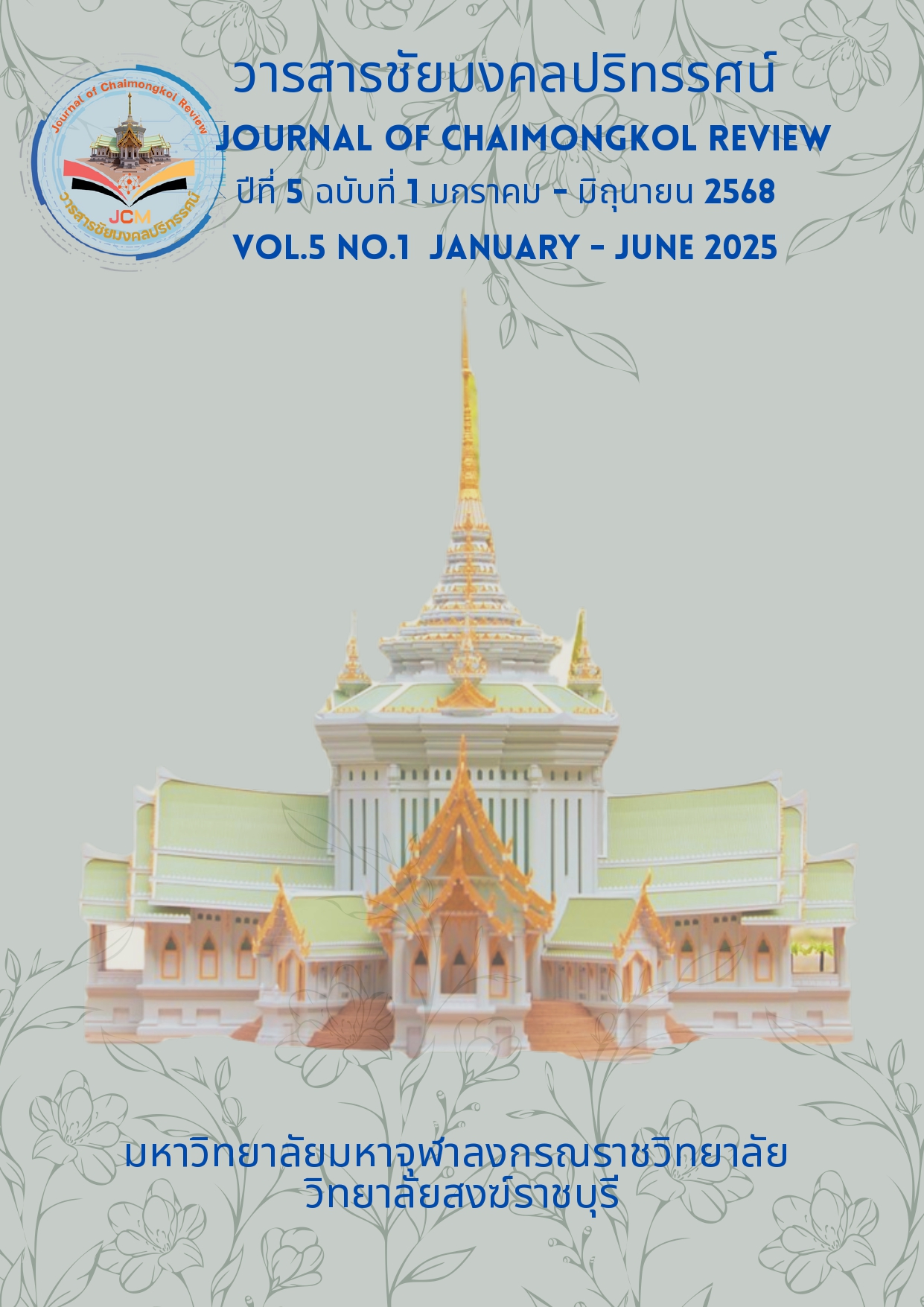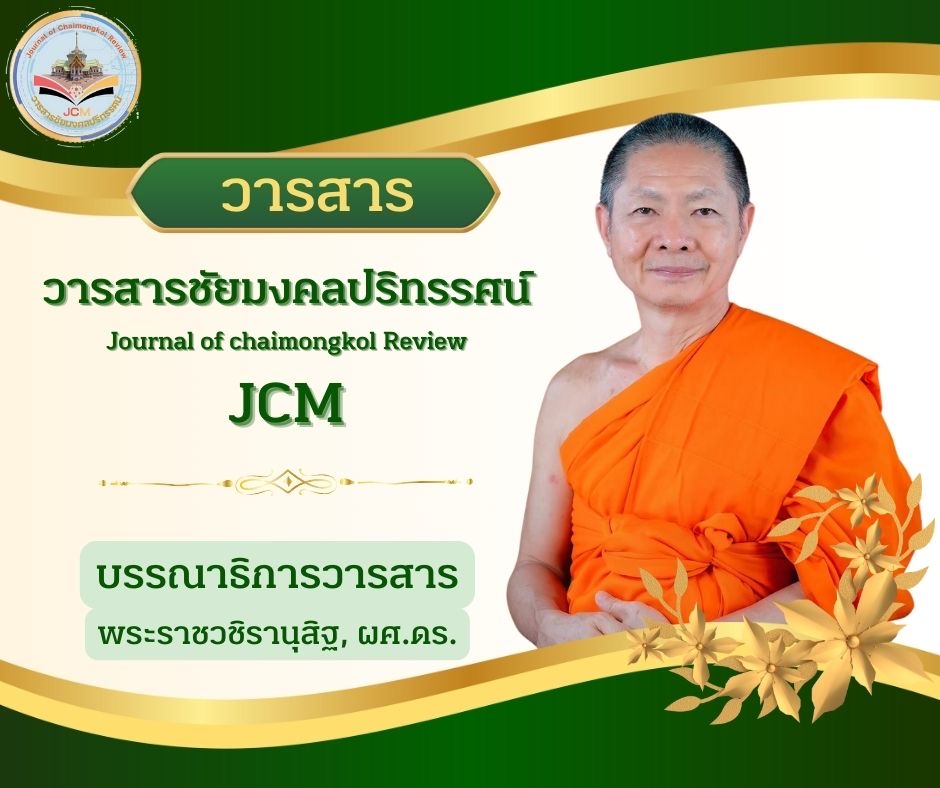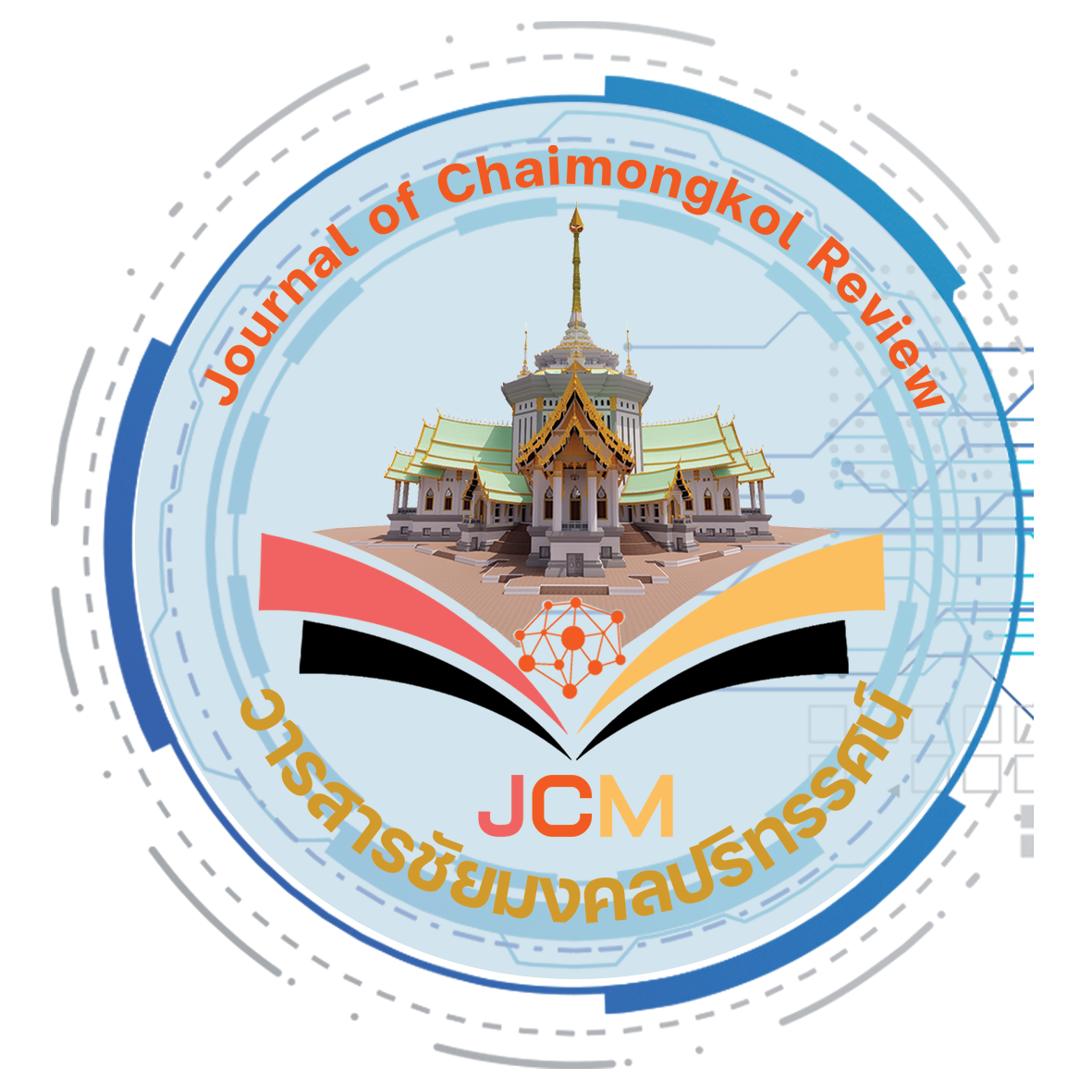MONKS AND THE PROMOTION OF FAITH AMONG THE PEOPLE IN THE DIGITAL AGE
Keywords:
monk, promote faith, digitalAbstract
This academic article aims to study the role of monks in promoting faith among the people in the digital age, based on documents, research, websites, and analysis. The findings of the study are as follows: 1.Faith refers to belief in the Triple Gem, consisting of the Buddha, the Dharma, and the Sangha, which are essential components of Buddhism. It is a belief that uses reasoning and logic to explain the faith, ensuring it is not blind belief. Faith is guided by wisdom and continuous contemplation. 2.In the digital age, the use of information technology plays a significant role in Thai society. Therefore, monks must adapt and promote faith among the people by explaining and guiding them according to Buddhist teachings. This will help people understand the proper practice of the Dharma, as taught by the Buddha, which can build faith and promote moral and ethical values among the people in today's world.3.The monks' role in promoting faith among the people in the digital age requires cooperation between the temple, the community, and schools. There must be mutual development and support. The people will help with providing food and other necessities for the monks, while monks will guide the community on the right path according to Buddhist teachings. Thus, cooperation between these groups is essential.
References
กรมวิชาการ กระทรวงศึกษาธิการ.(2553). การปฏิรูปการเรียนรู้ของกระทรวงศึกษาธิการ. กรุงเทพมหานคร : โรงพิมพ์คุรุสภาพลาดพร้าว.
กรมสามัญศึกษา. (2545). คู่มือการพัฒนาการเรียนการสอนตามหลักสูตร. กรุงเทพมหานคร : มิตรภาพการพิมพ์และสตูวีดิโอ.
กัลยาณมิตร. (2567). ศรัทธา. สืบค้น 12 ธันวาคม 2567 จาก https://kalyanamitra.org/th/article_detail.php?i=24094.
งามตา วินินทานนท์. (2536). ลักษณะทางพุทธศาสนาและพฤติกรรมศาสตร์ของบิดามารดาที่เกี่ยวข้องกับการอบรมเลี้ยงดูบุตร (รายงานการวิจัย). สถาบันวิจัยพฤติกรรมศาสตร์: มหาวิทยาลัยศรีนครินทร
วิโรฒ.
ธีรพงษ์ มหาวีโร. (2550). แผนพัฒนาเศรษฐกิจและสังคมแห่งชาติ ฉบับที่ ๑๐ พ.ศ. ๒๕๕๐-๒๕๕๔. กรุงเทพมหานคร : สำนักพิมพ์เดอะบุ๊คส์.
บรรจง ชูสกุลชาติ.(2542). คู่มือพัฒนาคุณธรรม. กรุงเทพมหานคร : กรมการศาสนา.
พระเทพเวที (ประยุทธ์ ปยุตฺโต). (2532). พุทธธรรมฉบับปรับปรุงและขยายความ. กรุงเทพมหานคร : จุฬาลงกรณ์มหาวิทยาลัย.
พระพรหมคุณาภรณ์ (ป.อ. ปยุตฺโต).(2557). พุทธธรรม ฉบับปรับขยาย. กรุงเทพมหานคร : ผลิธัมม์.
พุทธทาสภิกขุ.(2533). ใจความสำคัญแห่งคู่มือมนุษย์. กรุงเทพมหานคร : หจก.ภาพพิมพ์.
พุทธทาสภิกขุ.(2566). ชุมนุมเรื่องสั้นพุทธทาสภิกขุ. สืบค้น 17 ธันวาคม 2567.จาก http://www.openbase
.in.th/files/ptbook_short-articles.pdf
ไพฑูรย์ พวงยอด. (2545). ความเชื่อและการปฏิบัติตามความเชื่อทางพุทธศาสนาเรื่องมงคล ๓๙ ประการของนักเรียนชั้นมัธยมศึกษาปีที่ ๖ จังหวัดร้อยเอ็ด (วิทยานิพนธ์พุทธศาสตรมหาบัณฑิต สาขาวิชาจิตวิทยาการศึกษา).บัณฑิตวิทยาลัย : มหาวิทยาลัยมหาสารคาม.
สมาคมการศึกษาแห่งประเทศไทย.(2525). เอกสารปรกอบการอบรมจริยธรรมผู้บริหาร. กรุงเทพมหานคร : สมาคมการศึกษาแห่งประเทศไทย.
สุมณฑา คณาเจริญ. (2545). ศรัทธาในพระพุทธศาสนา. วารสารวงการครู, 8(2), 98-101.







